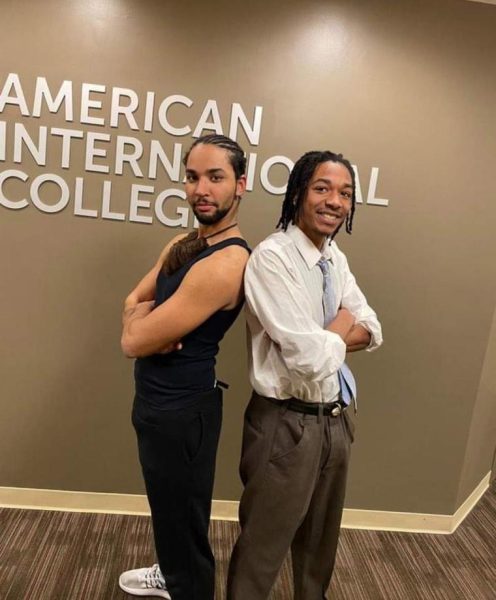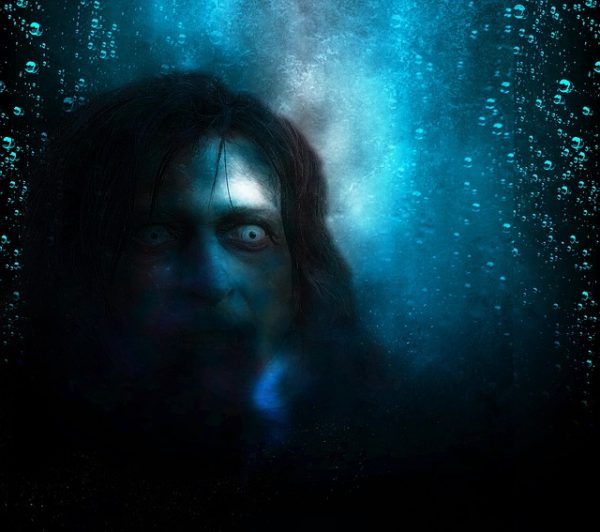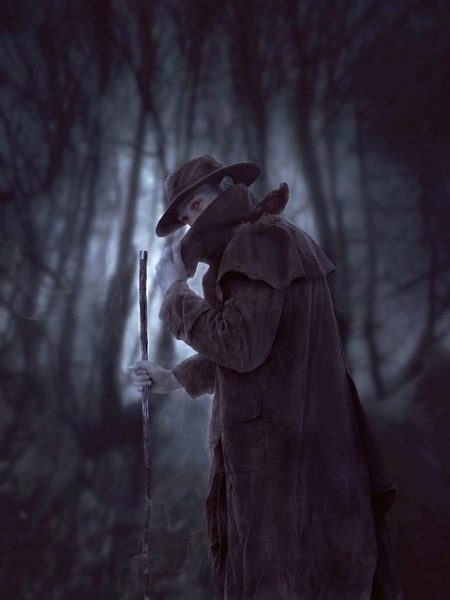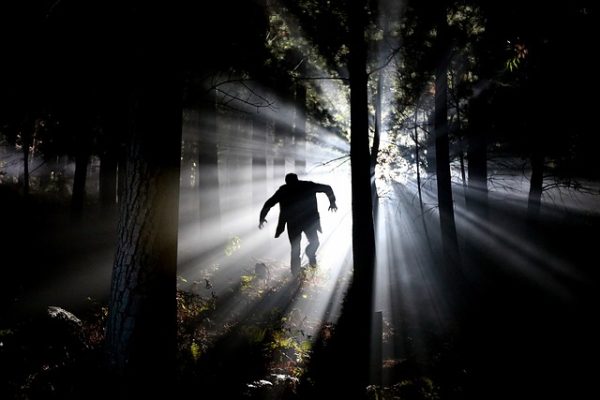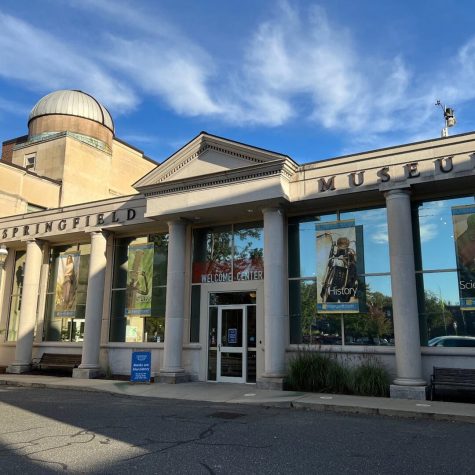‘Outbreak’ Returns to Blockbuster Status Among At-Home Viewers, with Good Reason
May 7, 2020
If you love suspense, heartwarming scenes, and an action-packed drama, then this is the film for you!
Outbreak (1995) will have your feelings going all over the place, but I won’t say too much. Just grab some popcorn and a friend and enjoy the roller coaster!
How would you feel if you knew the government dropped a bomb on a town because people were sick? How would you feel if they had a cure, but kept it a secret? Do you know what secrets your government is hiding? Do they have good ethics or morals in tough situations? These are some questions you might want to ask yourself after watching this film.
Outbreak is filled with drama, action, secrets, and romance. The main characters include Sam Daniels (Dustin Hoffman), Robby Keough (Rene Russo), General Billy Ford (Morgan Freeman), Casey Schuler (Kevin Spacey), Donald McClintock (Donald Sutherland), Salt (Cuba Gooding Jr.), and Jimbo Scott (Patrick Dempsey). The movie is about a virus outbreak that occurs in Africa during a war; the virus is called Motaba. When the US government hears about the Motaba virus, they order an air strike and wipe out the village, hiding it from the world. Years later, the virus comes back and hits a small town called Cedar Creek in California. A group of military doctors try their best to stop the spread of the virus and to find a cure by any means necessary, even if it means going against military orders. The virus eventually becomes airborne, making it very dangerous for the residents of Cedar Creek. The military oversees the isolation and quarantine of the town, but when things get worse, they tried try to order another airstrike to stop the spread.
I recommend this film because it is an eye opener about what it’s like in the hospitals when a pandemic happens. It shows how hectic and how hard doctors and nurses need to work in an emergency. The film also shows what type of things the government must think about before acting on a situation. It brings to light what the government takes into consideration before making a drastic decision, or any decision. They must think about who the decisions are going to affect. Who’s going to benefit from it? And is it worth doing if there will be people affected in a negative way? It also highlights how important scientists are during a pandemic. The film shows how hard and diligently they have to work to stop a sickness from spreading and to find the cure. Lastly, the film makes you question how people can be unethical in dire situations.
Some people might dislike this film because some parts might not feel realistic to them. Some may believe that it’s impossible to steal a military helicopter and to get away with it. Also, they may think disobeying direct orders without consequence is outlandish because people know that the military doesn’t tolerate insubordination. Some may also think that the military isn’t represented correctly in the film, particularly around the speech and actions of officers to their commanding officers. In many circumstances when Sam Daniels (Dustin Hoffman) is speaking with his commanding officer, General Billy Ford (Morgan Freeman), he was speaking freely to him as if they were of the same rank. For example, Daniels storms into General Ford’s office, questioning and demanding that he put him back on the Motaba research team. In another scene, Daniels is using profane language and raising his voice at his commanding officer. It’s well known that if an officer wants to speak freely to a higher ranking officer, he has to first ask permission, and Daniels doesn’t do that in any of the interactions with General Ford.
From a political standpoint, this film connects with what we’re going through today in our government regarding the coronavirus. The government officials in the film are seen seated around a boardroom table at the Pentagon. Representatives and government officials have to decide if they should send an airstrike or not, so that the president can use them as reference for his decision. In the pandemic today, many different people must come together and make decisions. The government advised that we stay in our homes and self-quarantine. They also decided that non-essential personnel stop working and also stay home, closing down schools, hair stores, liquor stores, etc. In the film, the Chief of Staff says that if the president goes down, they all go down, and that they must stand by him in public, no matter what. He specifically says, “…tell every idiot behind a camera that there was no other way.” This refers to what they are saying to the media about the bomb they are going to drop on Cedar Creek if it is necessary. The film isn’t exactly the same situation we have with the coronavirus, but the characters do have to consider the same things, and they have to start somewhere. In both the film and in today’s pandemic, there was a decision made that everyone should remain in their homes and stay in quarantine in order to stop the spread and to give medical workers time to help those who were ill. But the question you may ask is: does our government lack compassion like in the film? President Donald Trump tweeted that Michigan, Minnesota, and Virginia “LIBERATE” to leaders of those states, encouraging them to be less strict about social distancing in this pandemic. The tweet caused many people to come together and protest against quarantining, which puts the protesters in danger of catching the coronavirus and further spreading it. President Donald Trump’s decision to send that tweet was somewhat like the board room making the decision to either send the airstrike or not. The tweet was inconsiderate and foolish, and about as unethical as deciding to send an airstrike in the film. In both the film and present day, government officials are attempting to do good to help certain people, but in the process they hurt and put people in danger.
There were many scenes where the acting stands out in this film, but the scene I think the most powerful scene was when Salt (Cuba Gooding Jr.) was talking to Sam (Dustin Hoffman) after the incident in the village. It is Salt’s first time going out into the field. He and his team go into a village that was infected with the Motaba virus. It is traumatic for Salt because there are many dead and infected people, but what completely throws him off is the crying little boy sitting in between his two dead parents. The emotion shown in this scene feels so real. He is so afraid that he throws up in his haz-mat suit and takes off his helmet without knowing if he would be infected. After the incident, he is teary eyed, but is still trying to keep his bearings in front of a senior officer (Sam). He explains that he got scared and that he messed up. But Sam says, “… I don’t want anyone to work with me that isn’t scared.”
Salt replies, “Well, then I’m your man, sir.”
It is a very emotional and heartwarming scene because Salt could have gotten into serious trouble, even been kicked off the research team, but Sam encourages him and is very positive.
The director used a lot of sounds and music to express the intensity of the situation in many of the scenes. In the scene when Sam and Salt are attempting to catch the infected monkey, there is another variable added. They have to use a child to lure the monkey out of the California woods. When they are waiting for the monkey to come out, a low suspenseful music is played. But when the monkey appears, the little girl gets in front of the view of Salt’s aim. At that moment, the music starts to play louder and more intensely. The music creates suspense about what may happen to the little girl, and what might happen if Salt misses. It makes the audience think something bad is going to happen. On top of this, the mother is clearly worried about her child, adding to the intensity of the scene. Salt ends up slipping on a loose brick, scaring the monkey, and making you think the plan isn’t going to work. After he slips, the music gets extremely intense and the sound of the monkey screeching builds up anxiety, making the viewer hold their breath. But then after Salt takes the shot and hits the monkey, the music stops, and the intensity with it. The music and the sounds really intensify the situation and also makes it clear how the director wants the audience to feel.
These are some of the reasons why Outbreak is such an extraordinary movie. Even though the movie was released in 1995, it could not be more relevant today. It leaves you with a lot to think about. I highly recommend this movie, especially because in this present day when the coronavirus pandemic is happening, there’s a lot of unseen things that we might want answers to. You can watch this film on Netflix. It’s 2 hours and 8 minutes long, but it’s definitely worth your time. I hope this film review gives you a brief understanding on what to look for and anticipate when you watch the movie. Again, I think this movie is great and it is definitely something everyone should watch in this time when we’re all in quarantine in our homes. It would really make you think and take the time to really appreciate the doctors, nurses, scientists, all medical personnel, and first responders who are working endlessly amid the coronavirus pandemic. It also can encourage all of us to stay in our homes in order to keep others safe. We need to help give scientists time to develop the vaccine without spreading the virus further.



